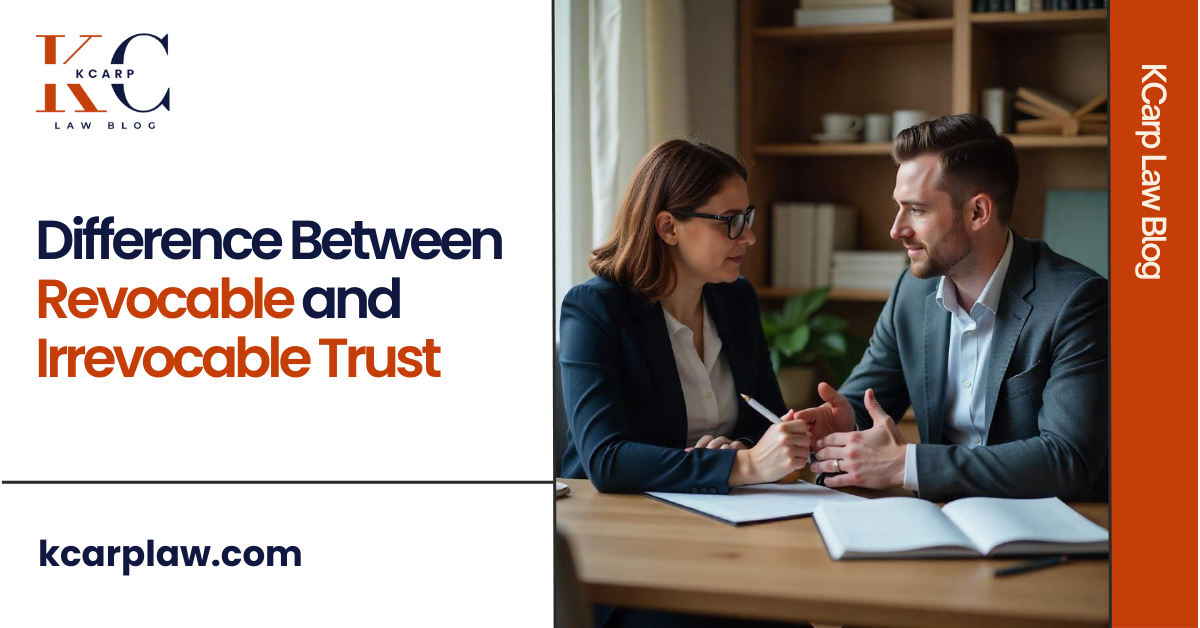Title insurance in real estate is a one-time-purchase policy designed to protect homeowners and lenders from hidden problems with a property’s ownership history. It covers title defects that existed before you took ownership, such as unpaid liens or unresolved legal claims from prior owners.
A home’s “title” is simply its legal ownership. Before closing on a property, a title search is conducted to find any obvious red flags in public records. If something is missed or arises later, your title insurance policy steps in to cover legal fees and losses, saving you from unexpected financial burdens. Title insurance is unique because it safeguards you against the past, whereas most other insurance products (like homeowners insurance) focus on the future.
How Is Title Insurance Different from Homeowners Insurance?
Title insurance differs from homeowners insurance because it addresses issues rooted in the property’s past, rather than future risks. If your roof is damaged in a storm or a visitor is injured on your property, that’s what homeowners insurance handles.
However, if a relative of a previous owner appears claiming partial ownership, homeowners insurance won’t help. Title insurance is what protects you if errors, omissions, or debts from before your purchase threaten your ownership. Also, homeowners insurance typically requires ongoing premium payments, whereas title insurance is a single upfront cost made during closing.
Why Do I Need Title Insurance for a Home Purchase?
You need title insurance to protect your substantial investment from hidden surprises that can surface long after you’ve signed the closing documents. Buying a home is often filled with excitement and stress, and worrying about old debts or undiscovered heirs shouldn’t add to your anxieties.
If a title problem does arise—like unpaid taxes or liens from the previous owner—title insurance ensures you’re not left footing the bill. In one recent year, $352 million in title claims were paid out in just three quarters, highlighting how often hidden issues do occur. Without coverage, you could be forced to pay costly legal fees or even risk losing your home. Title insurance exists to remove that uncertainty and safeguard your financial well-being.
Is Title Insurance Required by Law?
Title insurance is typically not required by law, but there’s an important caveat: if you’re taking out a mortgage, your lender will almost always demand a lender’s title insurance policy. This requirement helps protect the lender’s interest until your loan is paid off.
Cash buyers are not legally obligated to purchase owner’s title insurance, though it’s strongly recommended. Going without it can lead to major headaches if a title dispute surfaces. Most attorneys and real estate professionals advise buying an owner’s policy for peace of mind, even when there’s no formal legal mandate.
Who Pays for Title Insurance in a Real Estate Transaction?
Responsibility for paying title insurance costs can vary based on local customs and negotiations between the buyer and seller. Typically, buyers cover the cost of the lender’s policy because it protects the lender’s loan. When it comes to the owner’s policy, buyers often pay for that as well, though in some regions sellers might pick up the tab as a selling incentive.
In most standard transactions, the owner’s policy is seen as the buyer’s expense. However, everything is open to negotiation in the purchase contract. Be sure to review who’s paying for which title policy so you know what to expect on your closing disclosure.
How Much Does Title Insurance Cost?
Title insurance requires a one-time premium at closing rather than monthly or annual payments. After paying the premium, you won’t owe anything further, and the policy remains in effect as long as you own the home (for an owner’s policy) or until the loan is paid off (for a lender’s policy).
On average, title insurance costs about 0.5%–1.0% of the home’s purchase price. In practical terms, that can mean around $1,000 for a medium-priced home, though it may be higher for a more expensive property. Factors such as property value, state regulations, and whether you buy both an owner’s and lender’s policy simultaneously will affect your exact premium. While it’s another closing cost, most buyers find it a worthwhile investment given the potential legal and financial risks it prevents.
What Does Title Insurance Cover? (Common & Uncommon Issues)
Title insurance covers a wide array of ownership-related issues that come to light after you purchase the property. If a defect in the property’s chain of ownership arises—something not identified (or missed) during the initial title search—your policy will either defend your legal right to the property or compensate you for losses up to your policy limits.
Common Title Problems Covered by Title Insurance
- Unpaid liens or debts from a previous owner, such as delinquent property taxes or contractor liens.
- Errors in public records and documentation, like typos in old deeds that disrupt the clarity of ownership.
- Unknown easements or encumbrances that might restrict how you can use part of the property.
- Conflicting ownership claims, including long-lost heirs, ex-spouses, or other people who allege they have a valid interest in the home.
- Fraud or forgery in the chain of title, for instance, if a past deed was signed by someone impersonating the real owner.
Uncommon Title Problems Covered by Title Insurance
- Previously unrecorded mortgage releases, where an old loan was paid off but never formally discharged in county records.
- Boundary disputes or survey errors, where a neighbor challenges your property line based on conflicting documents.
- Building permit or zoning violations committed by a past owner that could burden you with fines or forced demolition.
- Unclear or missing documents in the historical chain of ownership, which can lead to unexpected challenges to your title.
These uncommon issues may seem far-fetched, yet they happen often enough to justify the extra security. Even if it’s rare, the consequences can be catastrophic for a homeowner who isn’t insured.
Owner’s Title Insurance vs. Lender’s Title Insurance
There are two main types of title insurance: owner’s policies and lender’s policies. They’re similar in function but differ in whose interests they protect.
- Owner’s Title Insurance: Protects you (the buyer) and your heirs. It typically covers the full purchase price, remains in effect as long as you own the property, and ensures your equity is defended if a title defect arises.
- Lender’s Title Insurance: Protects the mortgage lender’s interest up to the loan amount. It does not safeguard any equity you’ve built. It usually lasts until the loan is satisfied (paid off or refinanced).
A lender’s policy is nearly always required for financed transactions, but an owner’s policy is optional. Nonetheless, relying on the lender’s policy alone leaves your own equity exposed in a dispute, which is why most buyers opt for both.
How Do I Get Title Insurance? (The Process)
The process for getting title insurance is usually straightforward and embedded in your real estate closing. Here’s how it generally works:
- Title Search: A title company or attorney reviews public records for issues like unpaid liens, ownership claims, or document errors.
- Clearing Defects: If any problems are uncovered, those must be resolved before closing. This may mean paying off old debts or recording corrected deeds.
- Policy Issuance: Once everything is cleared, the title company issues the policy, which is included in your closing costs.
- Policy in Effect: You receive the policy document (and your lender receives theirs). You won’t need to “renew” title insurance; it remains effective for the life of your ownership or loan.
Most of the behind-the-scenes work is handled by the closing attorney or the title company. You typically just need to confirm you want an owner’s policy and then pay for it at settlement.
What Isn’t Covered by Title Insurance?
Although comprehensive, title insurance does have exclusions. Commonly excluded issues include:
- Post-purchase events, such as new liens you incur after buying the home.
- Known defects listed in the policy, which you agreed to accept when you purchased the property.
- Government actions, like eminent domain, since those are not considered title defects.
- Zoning or environmental matters, unless additional endorsements are specifically added.
- Certain boundary disputes not recorded, because standard policies often exclude unrecorded survey issues.
Enhanced policies or endorsements can expand coverage, but a standard policy primarily focuses on past title defects that were unknown at the time of closing.
Is There an Alternative to Buying Title Insurance? (Can I Skip It?)
It’s possible to skip title insurance if you’re purchasing with cash, but the risks are substantial. You could theoretically rely on the seller’s warranty of title or a professional title search alone. However, if a defect does surface—like an old lien or missing heir—your only recourse would be to pursue the seller, who may be unavailable or unable to pay.
A single claim can spiral into expensive litigation. For most homebuyers, paying for title insurance is a far better choice than rolling the dice on unforeseen problems. Some investors skip it in specialized cases (such as certain auction purchases), but even then, real estate attorneys often advise against going without coverage.
How Can a Real Estate Attorney Help with Title Insurance or Title Issues?
A real estate attorney can help with every stage of safeguarding your title:
- Reviewing the title search to spot unusual wording or records that might signal a problem.
- Clearing discovered defects, like unpaid liens or inaccurate deeds.
- Ensuring proper coverage, advising you if you need an enhanced policy or extra endorsements to protect unique aspects of your property.
- Coordinating the closing, making sure the correct documents are filed accurately.
- Assisting with any future claim, by guiding you through filing a title insurance claim and representing you in legal proceedings if necessary.
Local regulations and title practices can differ, so an attorney familiar with your area can tailor recommendations to protect you fully. Their guidance can reduce stress and give you confidence that all potential title issues are handled correctly.
Should I Get Title Insurance for My Home? – The Bottom Line
Yes. For most buyers, title insurance is a modest but powerful safeguard. It’s a small, one-time cost that can shield you from enormous financial risks, including legal fees, unpaid debts, and even challenges to your ownership.
A title insurance policy helps you rest easy knowing there’s a safety net for any past ownership discrepancies that might come to light. It’s not legally mandated in every scenario, but it’s widely considered a prudent choice. If you have any concerns or unique circumstances, consult a real estate attorney. They’ll clarify your options and help you determine the coverage you need, making title insurance one of the simplest yet most protective decisions you can make when buying a home.



